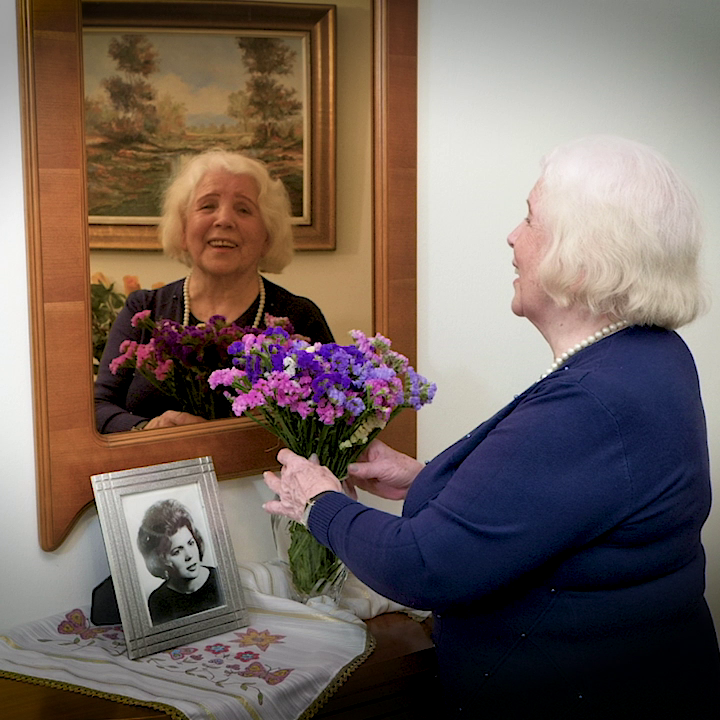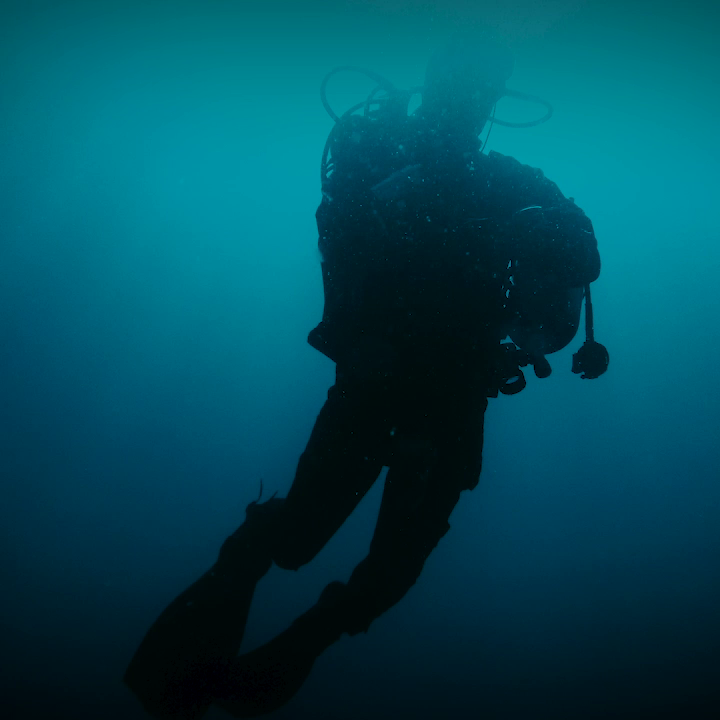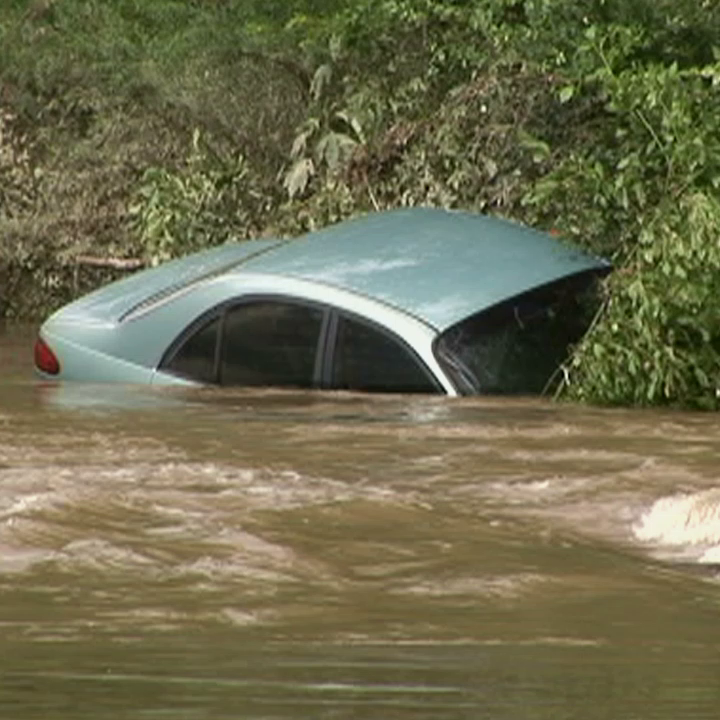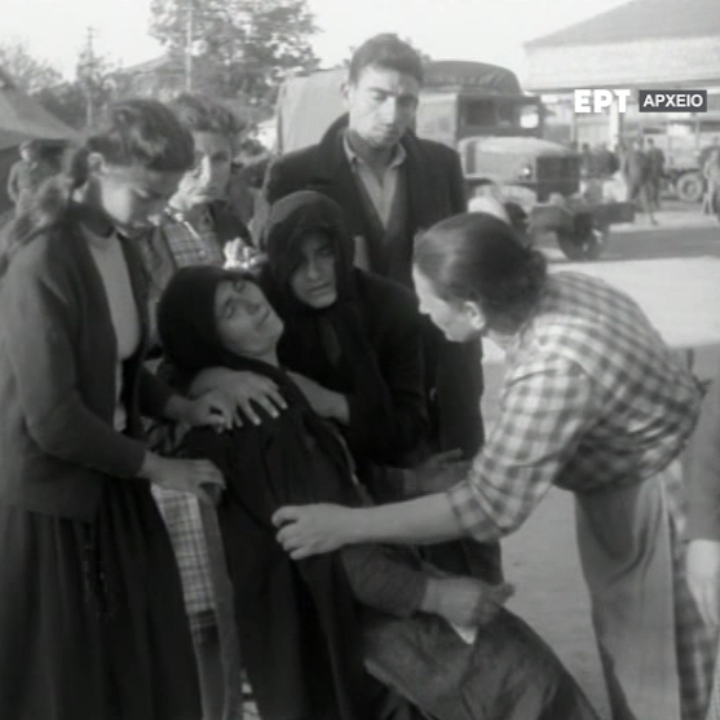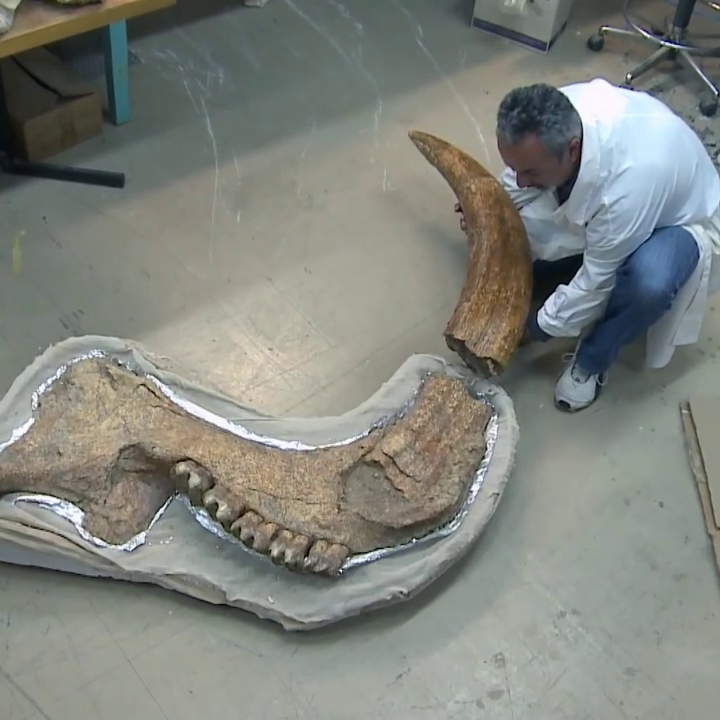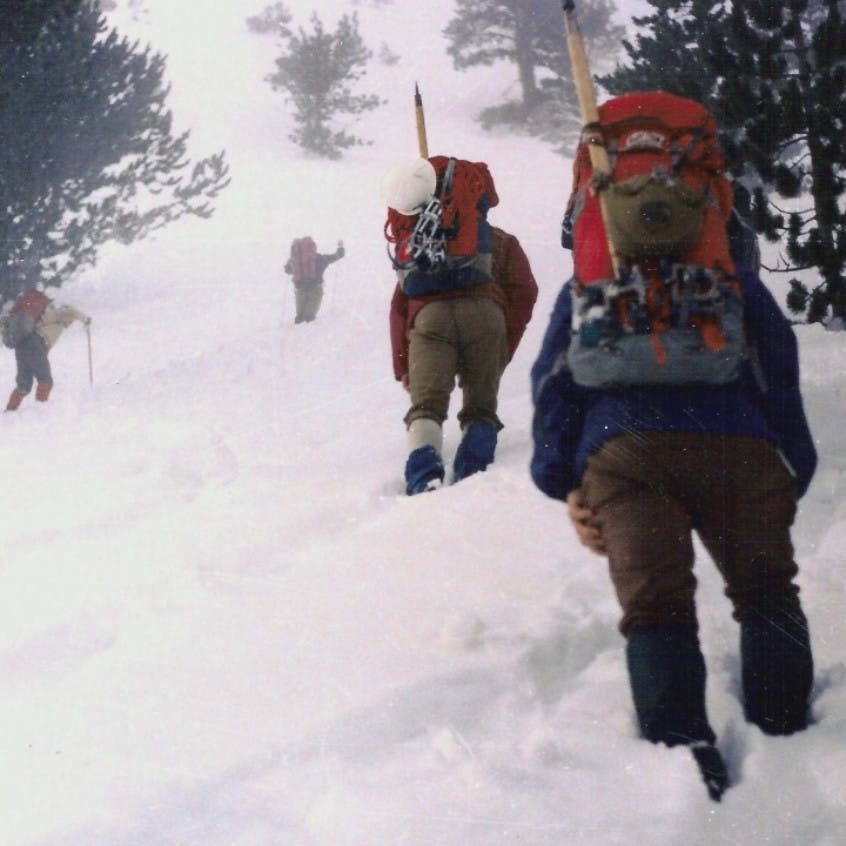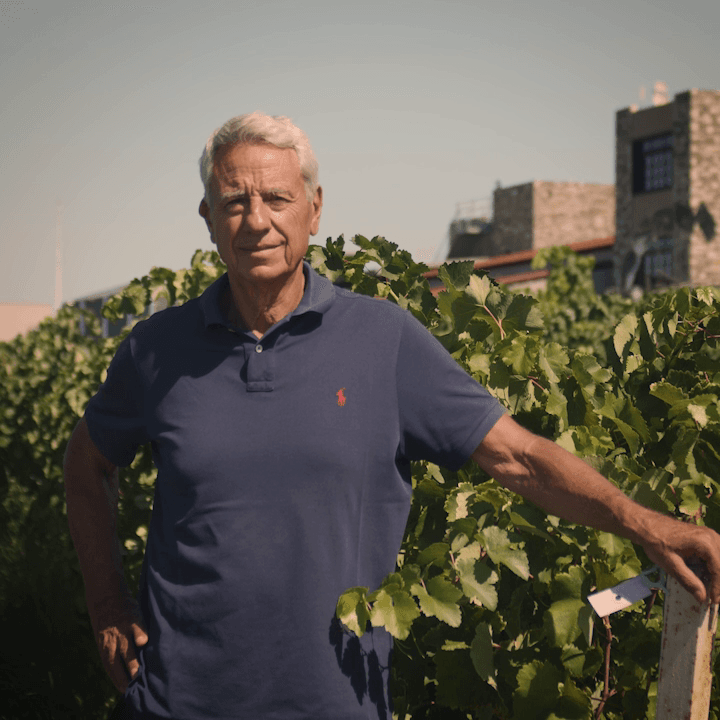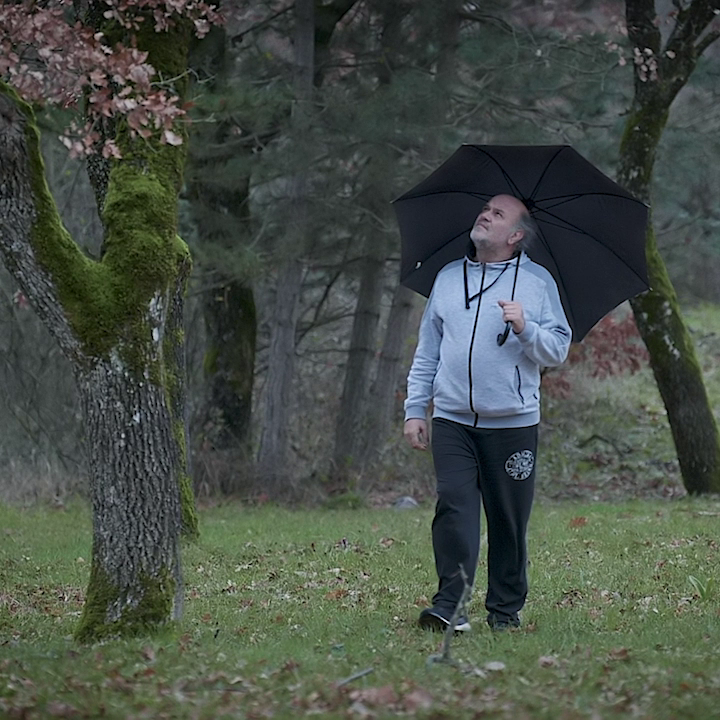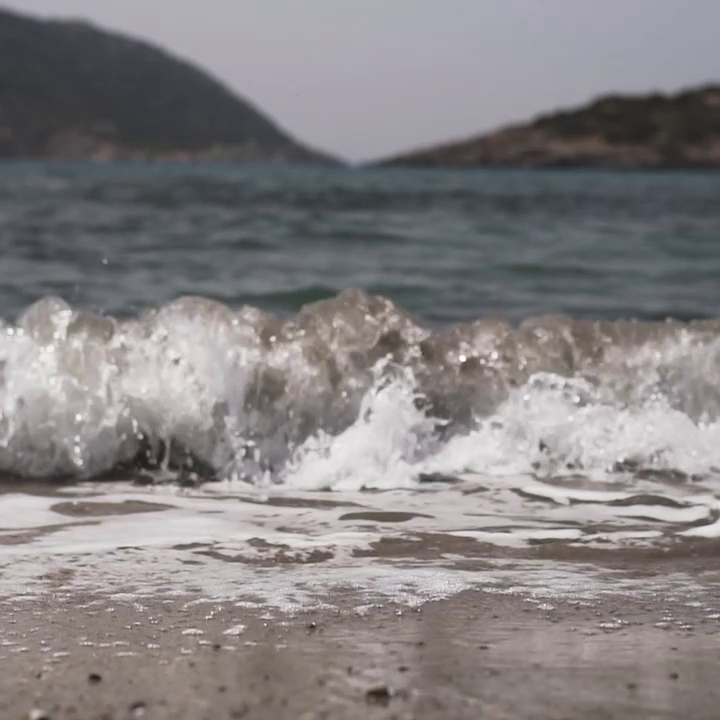I come from Antikythira, a small island that is almost deserted now.
The lighthouses were destroyed during the Occupation. The Germans and Italians there, used them as guard posts, and they almost destroyed them. So, when I was discharged from the army in 1954, the service decided to re-man the lighthouses.
I was posted here, to Cape Maleas. It was an unhealthy lighthouse up in the north, beaten by the sea; it was very damp. It was an isolated lighthouse: the nearest village at that time was Velanidia. And nobody wanted it. They did everything they could to avoid it.
I arrived here in Neapoli with my things, to go to the lighthouse. I couldn’t find transport. There were no roads from the village. I found a fisherman here from Agios Nikolas village, and he said: ‘I’ll take you to the lighthouse in the boat.’
We couldn’t approach, because there was a storm, and he couldn’t get the boat close enough to let me off. We went back to Agios ‘Lias, and I stayed two days at Agios ‘Lias: two days and nights. I went and put down a blanket in the church and slept there at night. On the third day we set out for the lighthouse.
We got there at night. I found two older lighthouse keepers already there; they were on shift at the lighthouse. The lighthouse had two main rooms and a small kitchen. There was water dripping inside the building from the saltwater that the wall had absorbed. I put some cardboard on the wall next to my bed so that the water didn’t soak my blankets. There was no heating, there was no spare room for us to light a fire and warm ourselves up. Everything stank; was black; smoke... our clothes reeked.
We lit a brazier once or twice, and the other guard, who was together with me, took it into his room and closed the door, the idiot. I got up at one o’clock, to change shift with him. I opened the door and there was a ‘puff!’ as soon as I opened it. He was lying on the bed and had been foaming at the mouth. A little while longer, and the man would have died: he had been poisoned by the brazier! I grabbed him and dragged him out and put him outside the door in the fresh air. He slowly came round.
It was our responsibility to make sure the light didn’t go out. Because such things happened often, especially in winter: when the diesel froze, the light went out. It had to be fixed in twenty minutes. We made sure the light was turning—because the light rotated; we wound it up every two and a half hours. If the light remained stationary, the sailors would get confused. They would just see a constant light, not a flashing light, to tell them where they were.
Cape Maleas was a difficult crossing then, when the boats were sailing boats—they didn’t engines and all that—and even Homer and Strabo, the ancient Greeks, had written about Cape Maleas: «Μαλέαν δε κάμψας, επιλάθου των οίκαδε», ‘You got round Maleas? That was a great achievement. You were lucky.’
I would see the fishing boats—in those days it was sail boats that fished down in Africa— going by during powerful storms and struggling for hours off the lighthouse to keep going despite the strong winds. Because the wind is five times stronger at this point, because of the lay of the land: the mountains, the slopes high above.... The wind blew and was forced towards the sea; it spent its energy towards the sea, it couldn’t do that on the mountain above. And there, it was chaos! And then you saw the boats, with big engines and all that, and they couldn’t proceed because of the strength of the North Wind. They fought against the sea, turning towards the sea, turning towards the land, and, zigzagging like this, they managed to pass the Cape.
A fisherman from Kastania came here one evening. The weather was calm, a beautiful day. But at night, the North Wind brought a downpour... He tried to leave, to raise the sail, because the boat didn’t have an engine. There was a gust of wind and the boat capsized.
He struggled out there with a piece of wood that was left, as all the oars had been lost in the sea, when he capsized. Using the piece of wood—first on one side then on the other, like an oar—he brought the boat close to the lighthouse. He disembarked and came to the lighthouse, at about twelve or one o’clock at night, and he shouted outside: ‘I almost drowned!’ he said. I brought him inside and gave him whatever old clothes I had, and he changed, as he was soaking wet.
God save us from the winter! I went through one night that has always stayed with me, and I still see it in nightmares. It was early February. There was a really strong storm, a northerly storm, and it was beating against the lighthouse. When the lighthouse was built, they hadn’t anticipated that the sea could reach up there.
So, a storm came, the waves grew, and the sea came up to the lighthouse, beat against it, and tons of seawater crashed onto the roof. Because of the damp in the roof, the plaster on many parts of the ceiling fell down inside. And I thought, if the roof gives way, it will crush me in here; I’ll be buried. A wave came and blasted the window, together with its frame, inside. It broke a window in the tower, and the water came in, into the room. It soaked everything inside... there was nothing left dry. And there I was, with two brooms, trying to clear out the water through the entrance. And as soon as I got a little out, another wave would come and more would get in... It was hell. It was really dark that night; the wind was howling. It seemed like all the demons of the world had got together and were screaming in the night. Rain, havoc... I was petrified, just that once! I thought, dear God, I’m going to die. I think about it and...
I stayed at the lighthouse, shut away there. I was twenty-six then, and I never went out. One day, my supervisor, who lived in Velanidia, said: ‘Get out, boy’, he said, ‘Go to the village, so people can meet you. You can stay at my house.’ And I went to the village. It was olive season, when they harvest the olives.
On the third day, it rained and there was a hut a little farther off. I went there to shelter from the rain. Just after we went into the hut, along came a woman in widow’s clothes, an old woman, with a girl. They were also gathering olives. As soon as I saw the girl, you know what I mean, I fell for her. But I didn’t know what she was called or who she was. I looked at her, discreetly of course, from across the hut we were waiting in.
The girl said to her mother: ‘Let’s go.’ ‘Go where?’ she replied, ‘It’s raining, we’ll get wet.’ ‘That stranger is looking at me, and I’m embarrassed.’ Because she was wet and in her work clothes. I liked her from the first moment I saw her, and I said to my supervisor: ‘Go and ask for this girl. I want her hand, I mean, I want to marry her.’ We got married in 1961 and had our first child in ‘62, my son.
The years went by in the lighthouse. Gradually, it was modernised. The lighthouse at Cape Maleas became automatic and worked on solar power. And that’s how the lighthouse still works to this day.
We went there by boat the year before last. My son wanted to go with his wife and my grandchildren, to see the lighthouse where I lived, ‘where grandad lived’, as he said to my grandchildren. We took a boat from here and went. I told them a few things. We sat outside. And that’s about it.


